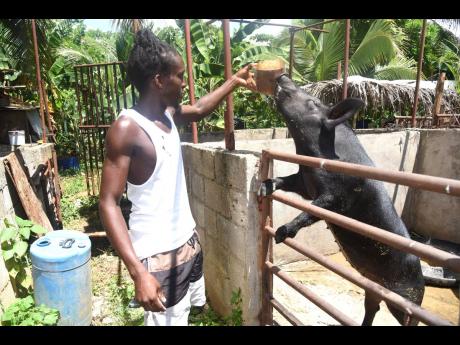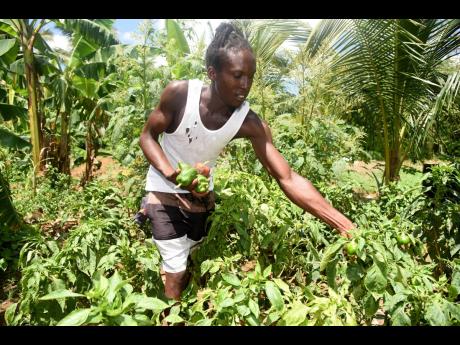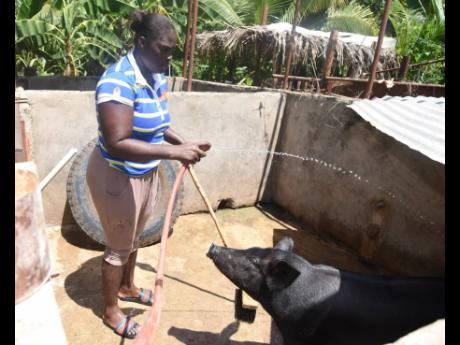Farming family plants seed of faith - Charlemont clan holds strain as thieves, mongooses test patience
Jermaine Black and his family remain committed to farming though they have repeatedly fallen victim to livestock thieves.
In the midst of the struggle to survive the economic ravages of the coronavirus pandemic, thieves paid Black a visit twice, stealing more than $185,000 worth of livestock. On both occasions, to his surprise, they swept up their prey around midday.
Eight of his goats were stolen in March and another two in April.
“... I go and check pan dem, I see them there so I move them out of the sun. When me go back now fi bring dem come back to the pen, I see them rope cut and eight missing – five mothers, one in kid and three rammies,” he told The Gleaner during a tour of his farm in Charlemont, St Catherine, on Thursday.
The tears that ran down Black’s mother’s cheeks when he broke the news to her represent the grief shared among thousands of farmers across Jamaica, where praedial larceny costs at least $6 billion annually.
But that is likely a conservative estimate as farmers have long complained of the ineffectiveness of the police unit that investigates the theft of livestock and produce. Few farmers even bother to report agricultural predation, because perpetrators are rarely caught and designated police teams are understaffed.
BEST DECISION
Black ventured into farming in 2015 after many failed attempts to get a job. Despite the challenges, he describes it as the best decision ever.
His farm spans two plots of land leased from the Rural Agricultural Development Authority. There, he cultivates sweet peppers, cucumbers, tomatoes, gungo peas, and plantains. The 30-year-old has introduced his mother and sister to his love and swayed them into making it a family business.
His sister, Kimone Graham-Forrest, jumped on the wagon three years ago.
The hands she once used to plait hair and colour nails as a licensed cosmetologist now busily sow sweet pepper seedlings and rear livestock.
“Me feel good. The first time me go inna farming, I catch sweet pepper,” she said.
Among Jermaine, Kimone and their mother, Jacqueline Smith, the family has 17 pigs and eight goats.
However, a coop that once held 465 chickens sits empty.
“The other day me get 112 chicken, but with the heavy rain, mongoose dig out a side of Mummy mesh come inna my coop, kill the 109 weh did lef’. Now me cyaa get no more,” said Kimone, who suffered a $13,000 hit – no small adversity in a micro-business with slim margins.
Kimone is still trying to source chickens in a waiting line that is long and which might only secure 50, or a third of the 150 ordered. The market has been hit by shortages amid bullish demand.
“We have the market to sell to, but a just fi have it inna the coop,” she said.
A representative of Jamaica Broilers said that no orders would be taken for chicks until January 2021 while layers would not be delivered until that time.
Jamaica Broilers told The Gleaner last week that it had ramped up production, which was expected to impact the market in approximately two weeks.
With poultry sales frozen and thieves running rampant, coupled with persistent water challenges, the livelihood of the family of 10 is gravely threatened.




